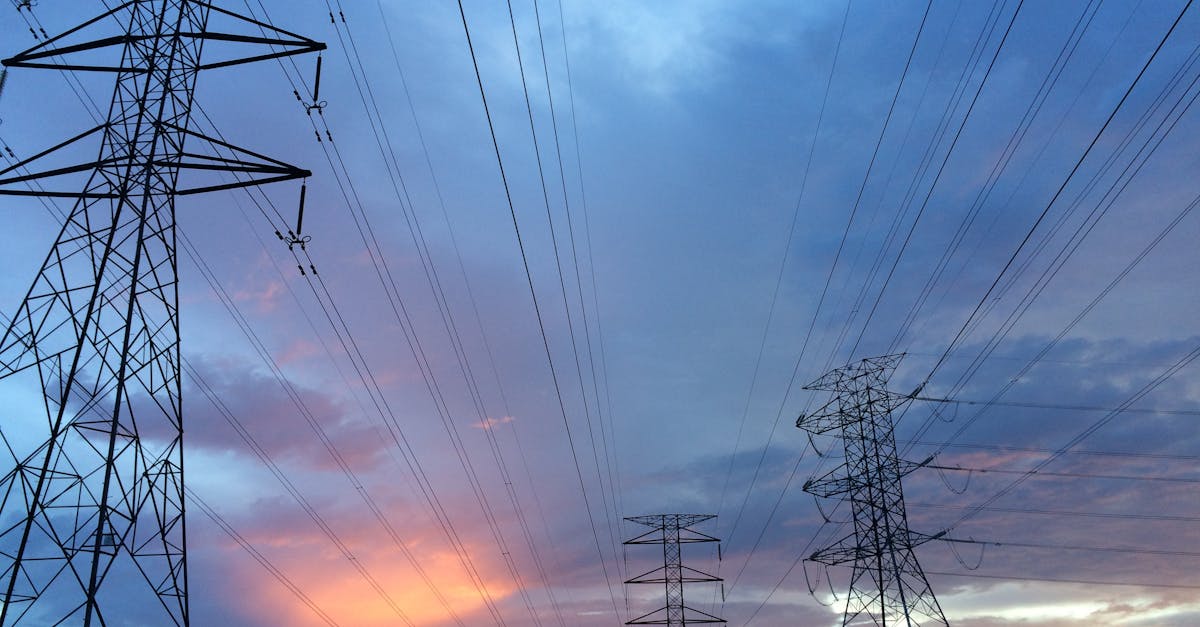Are you ready to embrace a more vibrant and energetic life? Our diet plays a crucial role in determining how we feel each day. The foods we consume can either sap our spirits or supercharge us for the day ahead. This blog will explore the world of nutrition & energy foods, which are essential for enhancing vitality and overall well-being. By unlocking the secrets of these nourishing options, you can transform your approach to eating and discover how to fuel your body effectively. Join us as we delve into the best sources of nourishment for that extra boost you’ve been searching for!
Main Points
- The importance of a balanced diet for energy.
- Key nutrition & energy sources to include in your meals.
- Simple nutrition & energy tips for everyday vitality.
- Creating a nutrition & energy balance suitable for your lifestyle.

Understanding the Science of Nutrition: How Food Fuels Your Energy
Nutrition plays a crucial role in fueling your energy levels. To optimize your performance and well-being, it’s essential to comprehend how different foods impact your vitality. The Nutrition & Energy relationship is multifaceted, often leading to confusion about what choices benefit us most. Here are essential tips to clarify the connection:
- Nutrition & Energy tips: Prioritize whole foods rich in carbohydrates, proteins, and healthy fats for sustained energy release.
- Nutrition & Energy sources: Choose items like whole grains, fruits, and lean meats to support energy production.
- Nutrition & Energy balance: Employ the right proportions of macronutrients to avoid energy crashes.
Understanding this complex interplay allows you to make informed choices, leading to enhanced vitality and overall health.
Top 10 Nutrient-Dense Foods to Boost Your Vitality Instantly
Eating the right foods can significantly enhance your energy levels and overall wellness. Let’s dive into some exceptional options to supercharge your vitality. First on the list is kale, a green powerhouse packed with vitamins A, C, and K. Next up, we have quinoa, a complete protein source that fuels your body. Not to forget, blueberries bring antioxidants that fight fatigue. Consuming these nutrient-dense foods not only supports your nutrition needs but also elevates your energy levels dramatically.
Quick Comparison of Top 10 Foods
| Food | Nutritional Benefits |
|---|---|
| Kale | Rich in vitamins A, C, and K |
| Quinoa | Complete protein source |
| Blueberries | High in antioxidants |
| Salmon | Loaded with omega-3 fatty acids |
| Spinach | Excellent source of iron |
These foods are just a glimpse into the vibrant world of nutrient options that can transform your nutrition and energy. Embark on this journey to unlock your potential!
The Role of Macronutrients: Balancing Proteins, Fats, and Carbs for Energy
Understanding the role of macronutrients is essential for optimal energy levels. Proteins primarily support muscle repair, but they also play a part in energy production when needed. Fats, although often misunderstood, serve as a concentrated energy source and assist in nutrient absorption. Carbohydrates, the body’s preferred fuel, provide quick energy but should be balanced with other macronutrients to prevent insulin spikes. Thus, properly balancing proteins, fats, and carbs ensures sustainable Nutrition & Energy, allowing individuals to function effectively throughout the day.
Superfoods to Energize Your Day: Nature’s Best Sources of Vitality
Fueling your body with the right nutrition is essential for maintaining energy levels throughout the day. Below is a curated list of superfoods that can invigorate your routine:
- Chia seeds: Packed with omega-3 fatty acids, these tiny seeds support brain function and enhance focus.
- Quinoa: A complete protein, quinoa provides essential amino acids while promoting muscle repair and sustained energy.
- Spinach: Rich in iron and vitamins, spinach can boost your stamina and combat fatigue.
Incorporating these nutrition-dense foods into your meals helps sustain your vitality. Embrace these nature-given treasures to enhance overall well-being and feel more energized every day.
Hydration and Energy Levels: The Often-Overlooked Connection
Many individuals underestimate the role of hydration in maintaining optimal energy levels. Dehydration can lead to fatigue and reduced cognitive function, impacting daily performance. Interestingly, the body’s energy production processes are heavily reliant on Nutrition and water. When you consume adequate fluids, your body efficiently absorbs essential nutrients, fueling your energy reserves. It’s crucial to remember that even mild dehydration can result in a noticeable dip in vitality. Thus, staying well-hydrated is vital for sustaining energy throughout the day.
Meal Planning for Maximum Energy: Strategies to Optimize Your Diet
Effective nutrition planning requires attention to detail and a strategic approach. Focus on incorporating whole foods that provide lasting energy, rather than quick fixes that lead to crashes. For instance, consider pairing complex carbohydrates with protein for balanced meals. This can enhance your overall vitality. Additionally, hydration plays a crucial role; a well-hydrated body performs better. Remember, each meal should nourish both body and mind, stimulating productivity throughout the day.
“Optimal nutrition is not just about eating; it’s a lifestyle choice that fuels your energy.”
Quick Tips for Meal Planning
| Food Group | Benefits |
|---|---|
| Fruits & Vegetables | Rich in vitamins & minerals |
| Whole Grains | Sustained energy release |
| Proteins | Muscle repair & energy |
Ultimately, consistent nutrition practices lead to enhanced energy levels. Embrace the journey of meal planning as a vital component of your life for sustained productivity.
The Impact of Processed Foods on Energy: What You Need to Know
Processed foods significantly influence our Nutrition and energy levels. While they may offer convenience, many products contain additives and sugars that disrupt natural energy balance. This can lead to energy spikes followed by crashes, leaving you sluggish and irritable. Understanding this impact is crucial for making informed dietary choices.
- Ingredient Awareness: Recognize added sugars and unhealthy fats.
- Portion Control: Moderation is key to maintaining energy.
- Whole Foods Integration: Prioritize whole foods for stable energy levels.
Incorporating more whole foods into your diet could enhance overall Nutrition and ensure consistent energy flow throughout the day, promoting a healthier lifestyle.
Conclusion
In the journey of exploring Nutrition & Energy foods, we’ve uncovered the profound impact these choices can have on our daily lives. By prioritizing nutrient-dense options, we not only fuel our bodies effectively but also enhance our overall well-being. Making informed decisions about what we consume is essential, especially in a world filled with options that may not serve our health. Therefore, embracing wholesome foods can lead to sustained energy levels and improved vitality. Ultimately, it is our responsibility to cultivate habits that support our health, making every meal an opportunity for nourishment.
Frequently Asked Questions
What are nutrition and energy foods?
Nutrition and energy foods are products that provide essential nutrients and calories to support overall health and energy levels. They include fruits, vegetables, whole grains, nuts, seeds, and lean proteins.
How do energy foods differ from regular foods?
Energy foods are specifically designed to provide a quick source of calories and nutrients to optimize energy levels, especially during physical activity or periods of exertion. Regular foods may not always offer the same concentrated energy.
Can I rely on energy foods for my daily nutrition?
While energy foods can be useful for quick energy boosts, they should not replace a balanced diet. It’s important to consume a variety of foods to meet all nutrient needs for optimal health.
How do I know if a food is a good source of energy?
Foods that are high in carbohydrates, healthy fats, and proteins are generally good sources of energy. Look for whole, minimally processed options that offer a blend of these macronutrients.
Are there any side effects of consuming energy foods?
Some energy foods can be high in sugars or unhealthy fats, which may lead to energy crashes or other health issues if consumed in excess. It’s important to choose nutrient-dense options and consume them in moderation.



